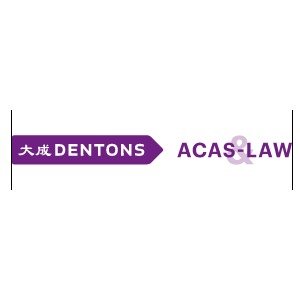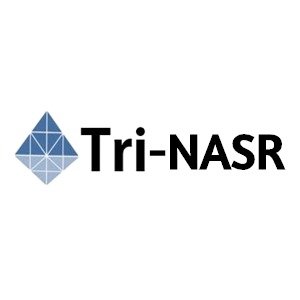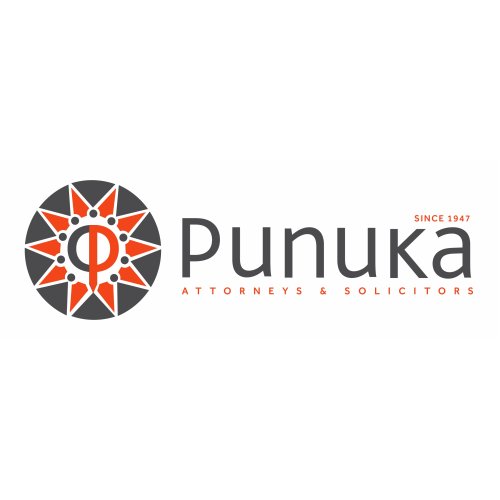Best Biotechnology Lawyers in Abuja
Share your needs with us, get contacted by law firms.
Free. Takes 2 min.
List of the best lawyers in Abuja, Nigeria
About Biotechnology Law in Abuja, Nigeria
Biotechnology in Abuja, Nigeria, embodies the intersection of biological sciences and technology, aiming to improve diverse sectors such as healthcare, agriculture, and environmental management. The rapid advancement in biotech innovations requires a legal framework to address issues related to patents, intellectual property, bioethics, regulatory compliance, and commerce. In Abuja, a burgeoning hub for biotech research and entrepreneurship, understanding the intricacies of biotechnology law is crucial for stakeholders seeking to operate within the legal landscape.
Why You May Need a Lawyer
Engaging with biotechnology in Abuja may necessitate legal expertise for several reasons. Companies and individuals might require assistance in safeguarding intellectual property, particularly when dealing with new inventions or processes. Regulatory compliance is another critical area, as biotechnology products often need to satisfy a variety of regulatory standards. Additionally, bioethical concerns and negotiations of research agreements or partnerships present situations where legal guidance can prove invaluable. Navigating the complexities of contracts, licensing, and potential disputes can be greatly facilitated through legal counsel.
Local Laws Overview
Several local laws impact biotechnology in Abuja. The Nigerian Patent and Designs Act is crucial for those involved in the invention process, protecting novel ideas and inventions. The National Biosafety Management Agency (NBMA) Act establishes rules for the safe practice and regulation of biotechnology, ensuring protection against risks to human health and the environment. Compliance with the Food and Drugs Act is also imperative for biotech products in the food and pharmaceutical industries. Intellectual property rights are further guided by the standards set in the Trademarks Act.
Frequently Asked Questions
What is biotechnology law?
Biotechnology law encompasses legal issues surrounding the use and manipulation of biological organisms, including patents, compliance with safety regulations, ethical considerations, and commercialization.
Do I need a patent lawyer for my biotech invention?
Yes, a patent lawyer can help protect your invention by navigating the complexities of patent applications and ensuring your intellectual property rights are enforceable.
What regulations affect biotech firms in Abuja?
Biotech firms are affected by the NBMA Act, Food and Drugs Act, and Nigerian Patent and Designs Act, focusing on safety, patents, and market approval processes.
How can I protect my biotech idea?
To protect a biotechnology idea, consider patenting it, negotiating non-disclosure agreements, and consulting an intellectual property lawyer to understand your rights.
What are the bioethical issues in biotechnology?
Bioethical issues include privacy concerns related to genetic data, ethical treatment of organisms, and moral questions surrounding genetic modification and reproductive technologies.
How does Nigeria's biosafety policy impact biotech businesses?
Nigeria's biosafety policy, governed by the NBMA, sets crucial regulatory standards to prevent adverse effects on health and the environment, impacting how biotech businesses operate and comply.
What should I consider when drafting a biotechnology contract?
Consider terms related to intellectual property, confidentiality, scope of work, liability clauses, compliance with laws, and dispute resolution mechanisms when drafting a biotechnology contract.
Are there incentives for biotech research and development?
The Nigerian government offers various incentives and grants to encourage research and innovation in biotechnology, aimed at economic growth and technological advancement.
Can international biotech companies operate in Abuja?
Yes, international biotech companies can operate in Abuja, but they must comply with Nigerian laws, including obtaining necessary permits and adhering to local and international standards.
What support exists for biotech startups in Abuja?
Support for biotech startups includes government grants, co-working spaces, innovation hubs, and business mentorship programs that focus on fostering innovation and development in the biotechnology sector.
Additional Resources
For those seeking legal advice in biotechnology, consult the National Biosafety Management Agency (NBMA) for regulatory information and compliance guidelines. The Nigerian Patent Office offers resources on intellectual property registration and protection. The National Office for Technology Acquisition and Promotion (NOTAP) provides support and information regarding technology transfer agreements and innovation.
Next Steps
If you need legal assistance in biotechnology, start by consulting a lawyer specializing in intellectual property and biotechnology regulations. They can provide guidance on compliance, patents, and contracts specific to your needs. It may also be beneficial to join biotechnology associations or networks in Abuja for support and additional resources. Conduct thorough research to ensure any legal representative you consider is knowledgeable and experienced in biotechnology law. Additionally, keep abreast of developments in local biotech regulations to remain informed and compliant.
Lawzana helps you find the best lawyers and law firms in Abuja through a curated and pre-screened list of qualified legal professionals. Our platform offers rankings and detailed profiles of attorneys and law firms, allowing you to compare based on practice areas, including Biotechnology, experience, and client feedback.
Each profile includes a description of the firm's areas of practice, client reviews, team members and partners, year of establishment, spoken languages, office locations, contact information, social media presence, and any published articles or resources. Most firms on our platform speak English and are experienced in both local and international legal matters.
Get a quote from top-rated law firms in Abuja, Nigeria — quickly, securely, and without unnecessary hassle.
Disclaimer:
The information provided on this page is for general informational purposes only and does not constitute legal advice. While we strive to ensure the accuracy and relevance of the content, legal information may change over time, and interpretations of the law can vary. You should always consult with a qualified legal professional for advice specific to your situation.
We disclaim all liability for actions taken or not taken based on the content of this page. If you believe any information is incorrect or outdated, please contact us, and we will review and update it where appropriate.

















